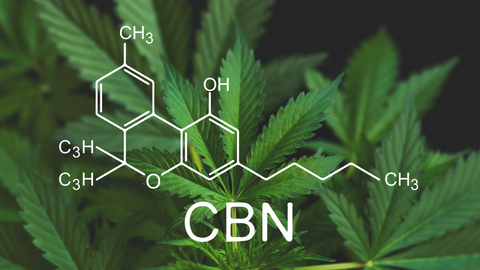CBDA, known as Cannabidiolic Acid, is a precursor chemical to CBD, offering a range of unique therapeutic benefits distinct from its well-known counterpart. This condensed overview dives into the essence of CBDA, its potential health benefits, and the scientific curiosity it sparks.
CBDA Uncovered: Nature's Precursor to Wellness
CBDA exists in the raw cannabis plant and transforms into CBD through decarboxylation. Despite being in the shadow of CBD, CBDA holds its ground with a spectrum of potential health benefits, primarily due to its non-psychoactive nature and unique interaction with the body's systems.
Unlocking the Potential of CBDA
The exploration into CBDA's benefits reveals a cannabinoid with promising therapeutic effects:
- Anti-inflammatory and Pain Management: Like NSAIDs, CBDA may offer relief from inflammation and pain without the psychoactive effects associated with other cannabinoids.
- Anti-tumor Properties: Preliminary research suggests a potential for CBDA in inhibiting cancer cell growth, especially in breast cancer, positioning it as a candidate for future cancer therapies.
- Mood Enhancement and Nausea Relief: By affecting serotonin receptors, CBDA could play a significant role in managing anxiety and nausea, making it particularly interesting for treatments related to mental health and side effects of treatments like chemotherapy.
CBDA vs. CBD: A Comparative Analysis
CBDA and CBD, while related, exhibit distinct properties due to their different states and interactions with the body. CBDA's unique ability to target COX enzymes linked to inflammation without directly interacting with cannabinoid receptors sets it apart from CBD, indicating its potential in creating different therapeutic pathways.
The Future of CBDA Research
Despite the burgeoning interest in CBDA, research is still in its nascent stages, especially compared to CBD. The evidence to date, primarily from preclinical studies, hints at a powerful therapeutic potential that warrants further investigation. The scientific community is optimistic about uncovering more profound benefits of CBDA, with ongoing studies aimed at understanding its efficacy in treating various conditions.
Embracing CBDA in Health and Wellness
The exploration of CBDA's benefits suggests a bright future for this cannabinoid in the wellness sector. Its potential for anti-inflammatory, anti-tumor, and mood-regulating effects, combined with its non-psychoactive profile, makes CBDA an exciting prospect for natural health solutions. As research progresses, CBDA may well become a staple in the cannabinoid therapy landscape, offering alternatives for those seeking relief without the high associated with THC.
This overview of CBDA aims to shed light on its therapeutic potential, backed by early but promising research. It underscores the importance of further scientific exploration to fully unlock the benefits of CBDA for health and wellness, highlighting its unique position within the cannabinoid family.
[These statements are not medical advice and have not been evaluated by the FDA]
Legal Disclaimer
Please note that the content of this article is intended for informational purposes only. It does not constitute legal advice and should not be used as such. While we strive to provide accurate and up-to-date information, laws and regulations surrounding cannabinoids are subject to change and can vary by jurisdiction. We are not legal professionals, and we strongly recommend that you consult with a qualified attorney or other legal professional to understand the current legal landscape in your specific location before making any decisions based on the information provided in this article. Always ensure that you are in compliance with your local, state, and federal laws.



Comments (0)
There are no comments for this article. Be the first one to leave a message!